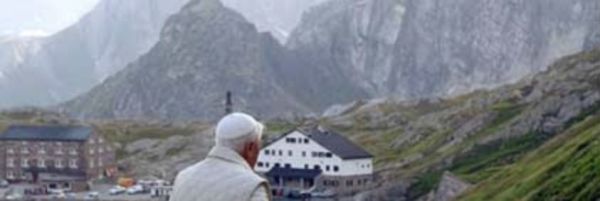Jesus said to the leper: "Be made clean!". According to the ancient Jewish law (cf. Lv 13-14), leprosy was not only considered a disease but also the most serious form of ritual "impurity". It was the priests' duty to diagnose it and to declare unclean the sick person who had to be isolated from the community and live outside the populated area until his eventual and well-certified recovery. Thus, leprosy constituted a kind of religious and civil death, and its healing a kind of resurrection. It is possible to see leprosy as a symbol of sin, which is the true impurity of heart that can distance us from God. It is not in fact the physical disease of leprosy that separates us from God as the ancient norms supposed but sin, spiritual and moral evil. This is why the Psalmist exclaims: "Blessed is he whose fault is taken away, / whose sin is covered", and then says, addressing God: "I acknowledged my sin to you, / my guilt I covered not. / I said, "I confess my faults to the Lord' / and you took away the guilt of my sin" (32[31]: 1, 5). The sins that we commit distance us from God and, if we do not humbly confess them, trusting in divine mercy, they will finally bring about the death of the soul. This miracle thus has a strong symbolic value. Jesus, as Isaiah had prophesied, is the Servant of the Lord who "has borne our griefs / and carried our sorrows" (Is 53: 4). In his Passion he will become as a leper, made impure by our sins, separated from God: he will do all this out of love, to obtain for us reconciliation, forgiveness and salvation. In the Sacrament of Penance, the Crucified and Risen Christ purifies us through his ministers with his infinite mercy, restores us to communion with the heavenly Father and with our brothers and makes us a gift of his love, his joy and his peace.
[Pope Benedict, Angelus 15 February 2009]












